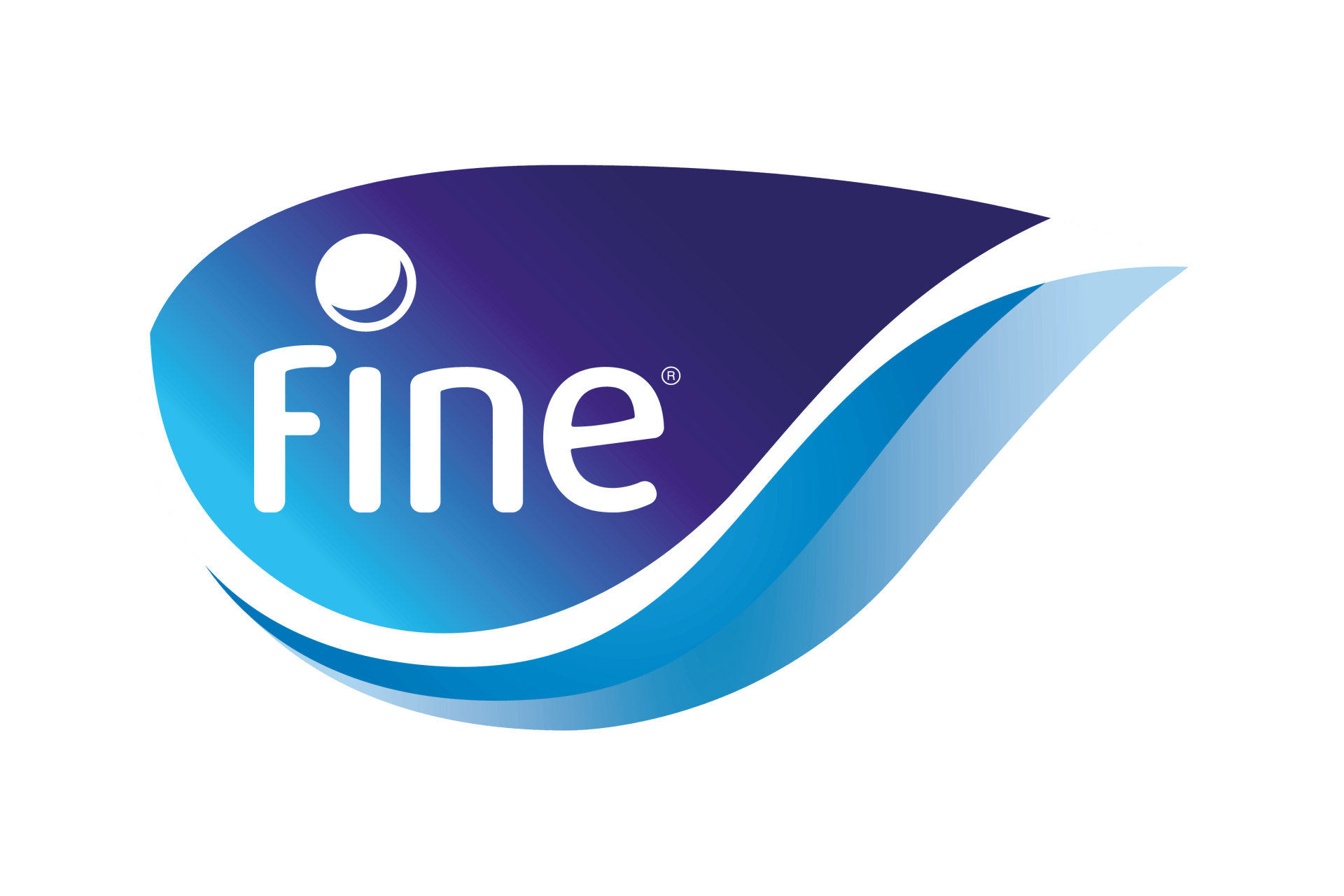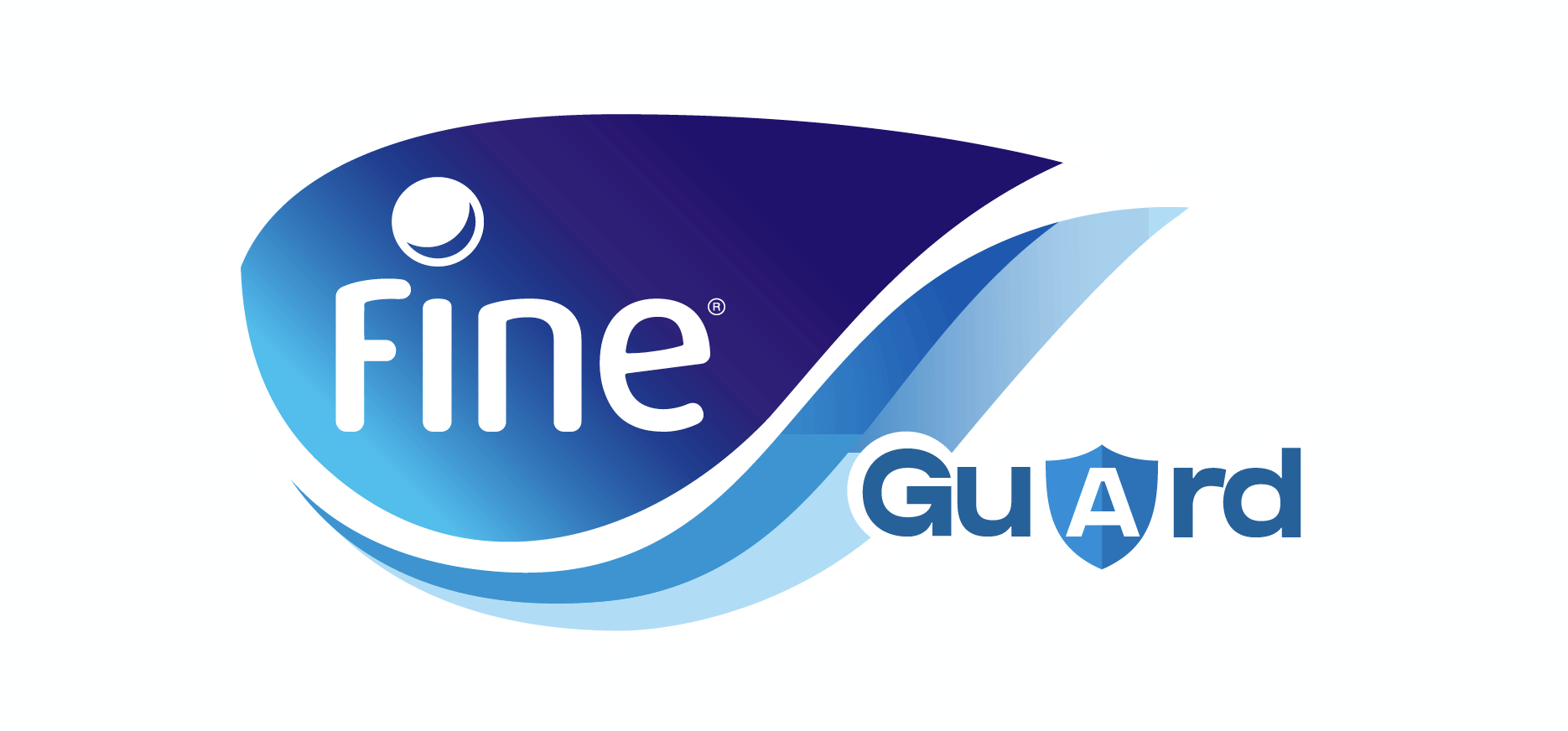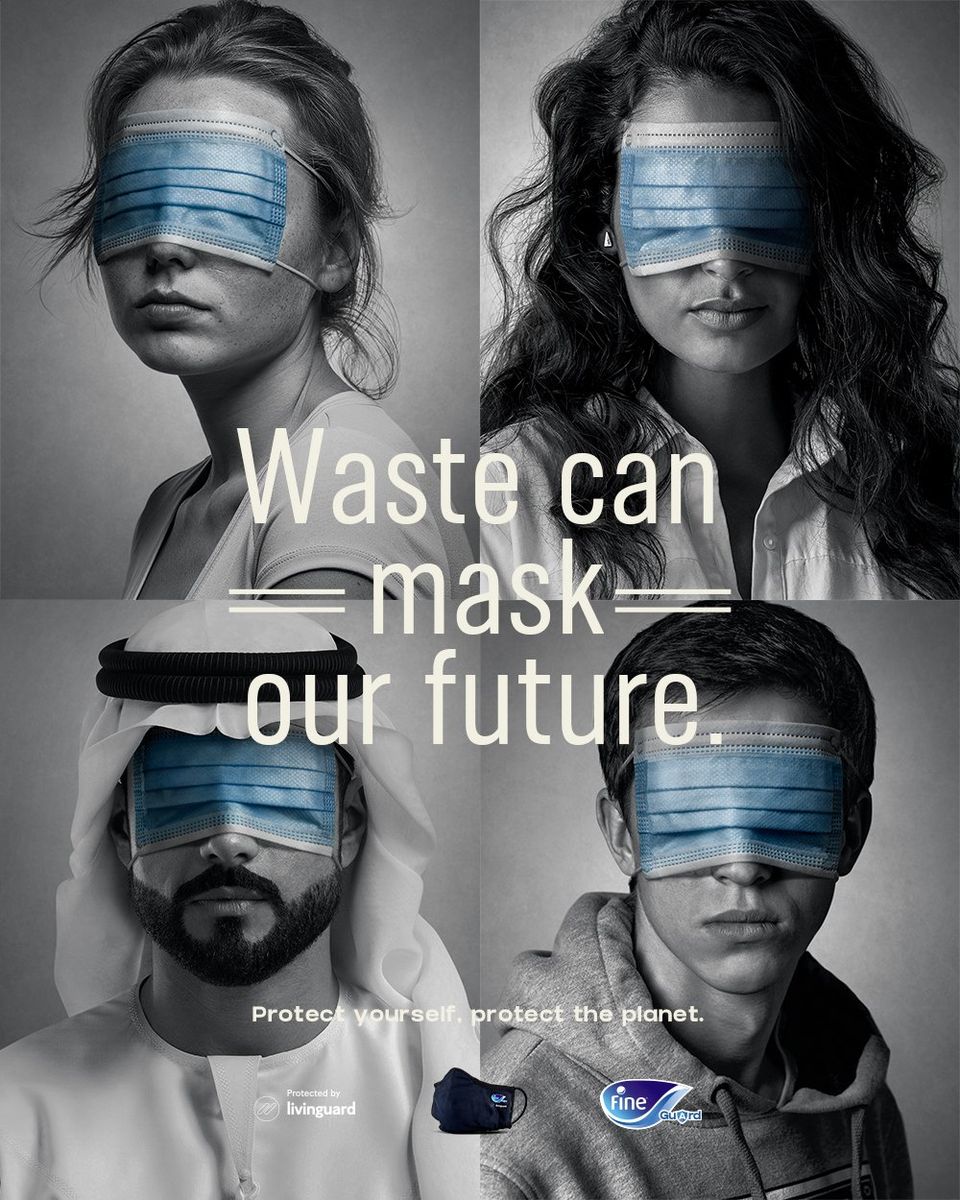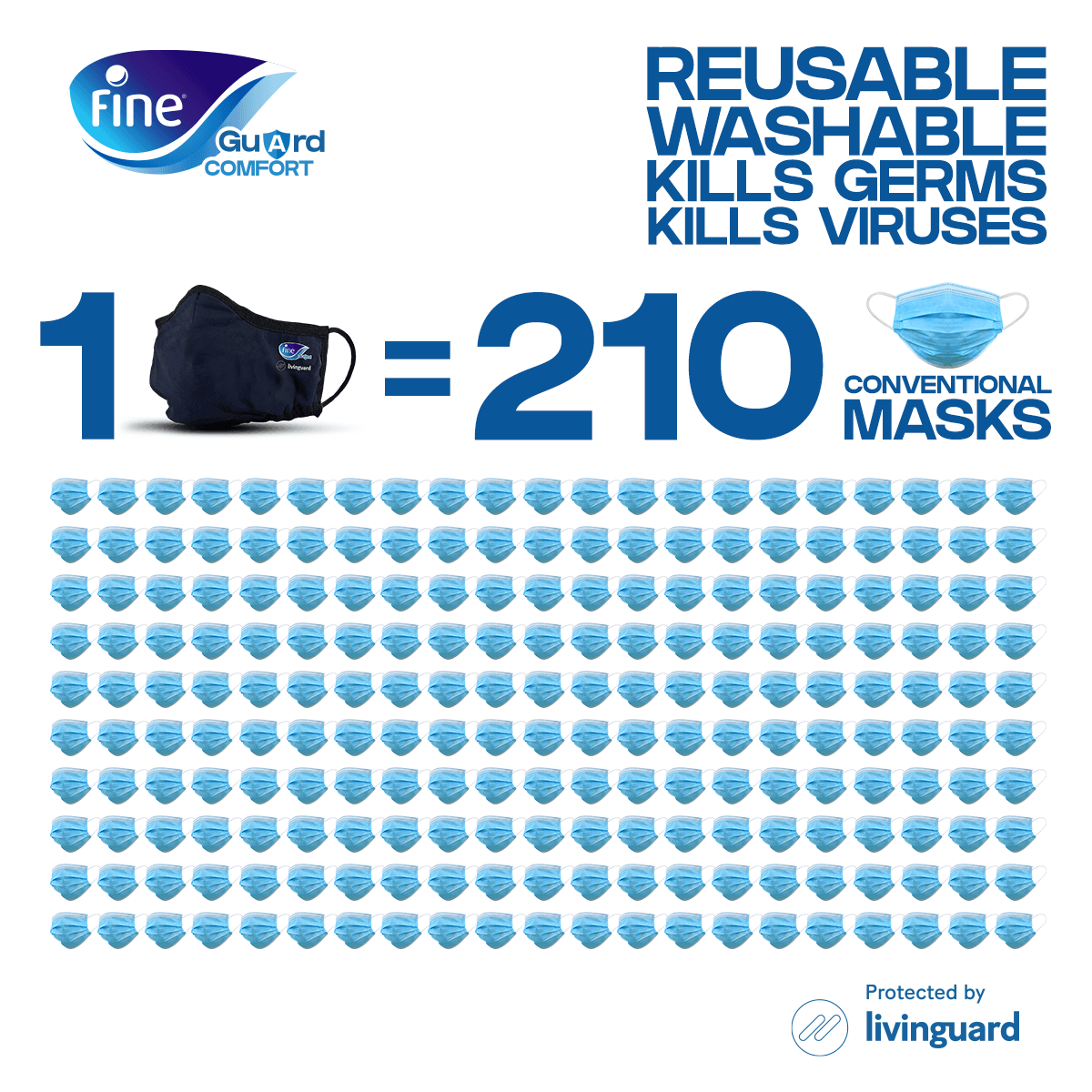Why we Produce only REUSABLE FACE MASKS?By James Michael Lafferty
Fortune 100 CEO—-Olympic Coach---Keynote Speaker and Trainer—-Middle East CEO of the Year 2019.For the past two months, since we first launched our reusable "Fine Guard" face masks, one consistent question keeps coming up: "Why don't you guys make DISPOSABLE MASKS?"It's a logical question for a company that does manufacture paper products! We put quite a bit of thought into this decision, and our basis boils down to three simple reasons.
1. We respect our consumer's money, particularly in these difficult times.
On a purely cash outlay basis, you can't beat a disposable mask. Prices range from $0.50 up to $2.00 or more per mask. That's not much. But there is a catch....disposable masks have a life of only 8 hours to be safe.
This means you have to wear a new one each day! And these costs then really add up when we factor-in the extended usage the globe is moving to. Conversely, a reusable mask, like Fine Guard, costs as low as $0.05/day depending on how long you use the mask and how often it is washed. It's an incredible level of value for our consumers to offer them reusable masks, and over time we save them money they don't need to spend. Over a year, a consumer using a disposable mask can save an estimated $700 by purchasing one reusable mask!
2. We can utilize the LIVINGUARD Technology on a reusable mask which kills bacteria and viruses.
Livinguard is a Swiss company that has patented a technology that kills germs in a safe manner, via disrupting the cellular walls of bacteria and viruses through ions. This technology has been tested in multiple labs across Europe and the US and has over a dozen patents. It is CE approved, and approved by Health Ministries in countries around the world. It is pending US FDA approval as I write this. Unlike any other mask, a mask impregnated with Livinguard actually will deactivate bacteria and viruses that may slip through the filtration. It's an added layer of protection. And this technology works best when applied to TEXTILES versus paper products like a disposable mask. Plus, even if we could do it, this would only make a disposable mask even much more expensive! Having a mask with Livinguard provides an extra layer of protection to the user, beyond solely filtration. And this is real protection and peace of mind!
3. We have to think of a "PC" (Post-Corona) world and what our planet will look like.
One point I keep harping on with my team is, we must not only focus on TODAY and managing this crisis, but we also have to keep an eye on the "PC" world, because it is coming, we will exit this crisis and we have to ask ourselves, "What kind of a world are we going to end up with ?"
Every one of these billions, if not trillions of disposable masks, is going to end up in a landfill. Dangerously filled with pathogens. Disposable masks are made up in many cases by non-woven plastics that DO NOT DEGRADE IN LANDFILLS. Imagine this...a world in which we have landfills loaded with germ-filled disposable masks which don't bio-degrade. Billions of them. Trillions of them perhaps. Contrast this to a reusable mask. We help preserve our planet when this is all over. A Fine Guard mask has a 1 year life for the Livinguard Technology and a full 2 additional years as a fully-functioning N95 mask. That's three years of savings on disposable masks, or a whopping 1,095 disposable masks we can avoid using and tossing into a landfill. We need to think not only short-term but long-term. And think about the impact on our planet.
That's why we focus solely on reusable masks.
Did you know?
We may be wearing face masks for a long time, but they don’t have to be disposable.By Keith Bradley
April 26, 2020A number of countries are cautiously relaxing lockdowns. But at the same time many are recommending or mandating that people wear masks. But disposable masks are costly and create another set of health and environmental problems. We look at alternatives.
An environmental problem
Discarded face masks are becoming a common sight all over the world. In Hong Kong, where the public have been wearing them for several months, you can find large quantities of masks on beaches and even washed up on fairly remote islands.
In the UAE, Natalie Banks, Founder of local marine conservation organization Azraq, told GloballyToday: “The increased use of these masks during the Covid-19 pandemic means that they are finding there way into landfill or waterways, having a negative impact on the environment and marine life. Sadly, in just a short walk in my urban neighborhood I regularly uncover discarded disposable masks.”
But even when masks are disposed of correctly, they don’t go away. To make surgical face masks, manufacturers usually use non-woven fabric made of polypropylene. Non-woven fabric has better bacteria filtration and air permeability than woven cloth. But as with all polypropylene products it will not degrade in a landfill. So Imagine this…a world in which we have landfills loaded with germ-filled disposable masks which don’t bio-degrade. Billions of them.
An ongoing expense
Not only are disposable masks an environmental problem but they can also turn out to be expensive. Health officials recommend changing a disposable mask once a day and, at USD 0.40-0.75 per mask, the costs add up. As lockdowns and measures to restrict physical interaction are relaxed, we may want or need to wear masks for months or even years into the future.
But just as there are alternatives to disposable straws, bottles, cutlery and nappies, so there are alternatives to disposable masks.
Cloth masks
The Centre for Disease Control’s Website, provides helpful information on how to make your own cloth mask. The Website goes on to say that regular washing in a washing machine will keep the mask clean and sterilised.
But if you don’t want the hassle of sewing or folding your own, you can purchase a cheap cotton mask. Most pharmacies don’t seem to stock them but go on Amazon and you will find a number of different brands.
Adding an additional layer of protection
Swiss based Livinguard has developed a patented technology which uses ions to turn fabrics and other materials into disinfectants. The positively charge ions capture the pathogens and then rapture their walls causing them to disintegrate.
One UAE based wellness company has grasped the value of the technology for face masks. Fine Hygienic Holding is using Livinguard to add an extra level of protection beyond the physical barrier of the cloth. The technology is CE approved, and approved by Health Ministries in countries around the world. So if you literally want an extra layer of protection consider a Fine Hygienic Holding mask (also available on Amazon).










